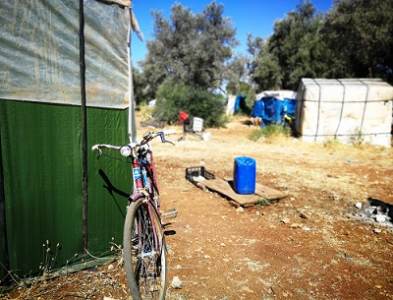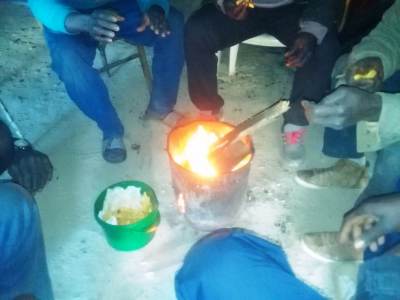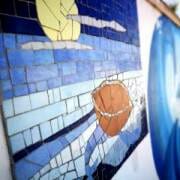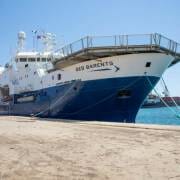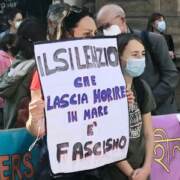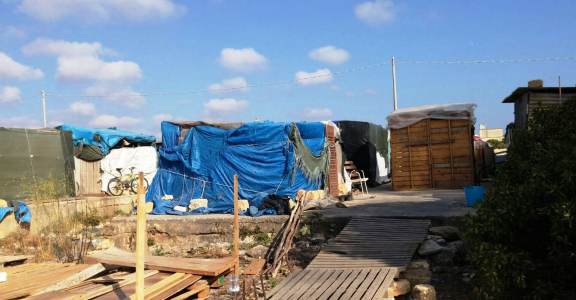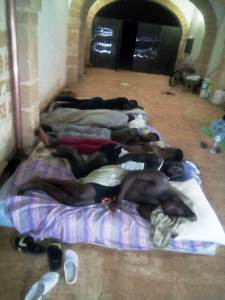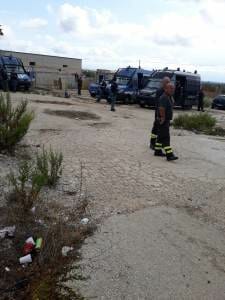Diakité’s lesson
In Campobello di Mazara the 2020 olive harvesting has started and Diakité pronounces the most emblematic words: “I have been here for 15 years and you keep telling me you are doing everything you can for us. You, associations and activists, consider yourselves our friends but you too should be ashamed. You take an occasional tour of the camp and think you are changing the world, but then you go back home sleeping in your warm bed. And I saw Ousmane die and many others go missing in the fields exploited by the employer of the moment”.
Diakité – 57 years old – is among the veterans of the ghost ghetto situated between Campobello di Mazara and Castelvetrano. 900 migrants live there and have to stay hidden and away from prying eyes.
“During this pandemic we feel even more cornered, with doctors in white suits wanting to report that we are positive for the virus while no one in 15 years has worried about granting us a dignified life. We are in the midst of a pandemic and no one explained to these young guys the risks involved. Not a single employer worried about our health: they see us as mere arms. This year again we do not have water and we live between the trash that no one collects, but we are considered to be the filthy ones. Try and live with 900 people who cannot take a shower after breaking their neck all day. Try and sleep on the ground between the mud, the mice and the cockroaches walking on your body while you attempt to fall asleep. No toilet, no light. No doubt that some of us will be positive. But you do not worry about us being positive when we work and fill the boxes with olives”.
We have already reported that during this olive harvesting season in Covid-19 times no camps or support measures were set up for seasonal workers in Alcamo. Interestingly enough, nothing was put in place even in Campobello, where in previous years something had been done. This year the Red Cross did not offer its availability to manage the camp and the authorities – all of them – allowed time to pass until a bomb was created.
Everyone knows these people are essential to guarantee that the economy of this territory will not die. “The problem is that we should not come to work here, and we should leave you alone instead. Only then you would pay attention and maybe see us as persons, but we are too hungry and have too many necessities to be brave enough not to come here. You have created so many slaves that even if I do not come, you will always find someone to exploit”.
To make matters worse, on top of the exploitation by employers, unscrupulous people infiltrate this situation of despair in an attempt to make money “from the bottom” by selling water tanks for gold or offering paid rides to work.
In these circumstances authorities looked the other way and pretended not to know this bomb was going to be created. The funds allocated to support agricultural workers during the emergency are in the coffers of Municipalities and Regions who are not able to plan a future.
Pandemic and non-reception
The fragile Italian reception system did not withstand the impact of the Covid-19 pandemic, during which deaths at sea draw even less attention than usual.
The last ones in chronological order are the victims of a shipwreck occurred a few days ago. Other deaths are caused by the management of arrivals, as in the case of Abou and Abdallah. Some light still needs to be shed on the death of these two minors.
These days we receive numerous reports of abuses perpetrated by the police in Covid centres all over the region, where phones and shoes are confiscated to prevent escapes.
Many refuse to give up and protest even by jumping off the balconies of these centres, where the law is suspended. They often end up in the hospital with a cracked pelvis or ankle, broken legs, or other self-inflicted injuries. Frequently they are people with serious psychological vulnerabilities. We have been reported many cases when the quarantine period is prolonged because there are no spaces available to keep apart positive and negative cases. Basically, an agony with no explanation, only orders and restrictions. Just like and even worse than prison.
Protests and suicide attempts do not occur only in Covid centres, but even on quarantine ships, non-places without a legal regulation, full of misery for those who were in Libya and risked their life at sea. Despite the government’s reassurances on its cessation, the practice of transferring positive people from the centres to the ships seems to be still taking place. On board there are even clashes between the police and groups of Tunisians who are informed about their imminent repatriation. In many cases the repatriation happens with a direct transfer to the Falcone and Borsellino airport without going through the CPR* because to the lack of places available.
For each disembarkation from a quarantine ship there is always a high number of migrants – mostly Tunisians – who are left outside the ports with a deportation order or a decision to refuse entry. They do not receive any information also because no international humanitarian association is present. Three days ago, for example, after the ship Allegra disembarked in Palermo, at least 60 Tunisians were refused entry: the result were people left wandering the streets day and night, despite the restrictions and the curfew. They still do not have the ability to disappear as our politicians would wish.
What lies ahead
In this dreadful situation we ask ourselves two questions. Will the Campobello/Castevetrano ghetto be declared a red zone like Foggia or Rosarno, and thus transformed in an area of guerrilla between desperate people and police, or – despite the extreme delay – will there be an attempt to patch up an emergency that no one wants to solve? Or will an eviction take place once all the olives will have been harvested?
“After all you believe to be worth more than me, to be more intelligent than me. You think we are worthless, that we are mere arms and that we are used to living in the mud and to accepting everything silently. Only for this reason you can do all this to us, let us die little by little. But you are wrong, and you will have to give account to God, whatever it may be. We just want to be considered as persons”.
Diakité’s last words before we say goodbye sound like the umpteenth warning that will remain unheard.
Editorial staff Borderline Sicilia
*CPR: Centro di permanenza per il rimpatrio – Detention and repatriation center
Translated from Italian by Cristina Tosone

